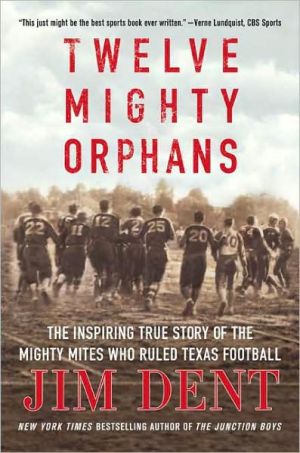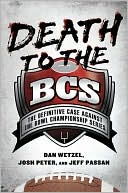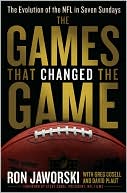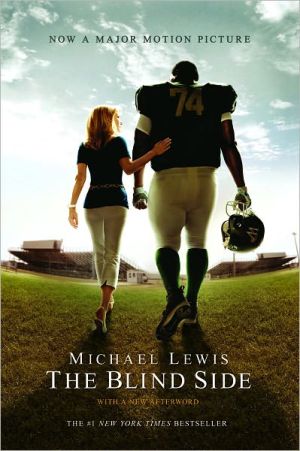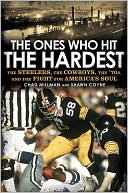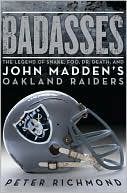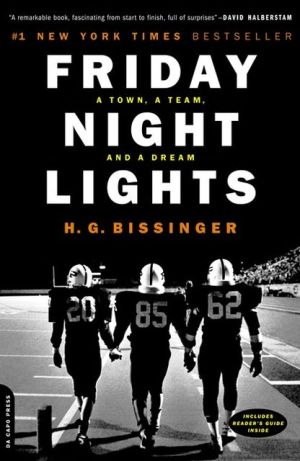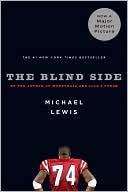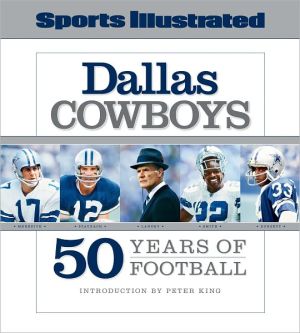Twelve Mighty Orphans: The Inspiring True Story of the Mighty Mites Who Ruled Texas Football
They Were Just a Scrawny Band of Orphans from Fort Worth, Texas, in the 1930s and 1940s-the Masonic Home Mighty Mites, a group of boys bound together by hardship and death. Their first practice started without a football, only six scarred leather helmets, and mismatched, tattered jerseys. But their devoted coach, who worked for peanuts and drove them around in the Home's antique, smoke-belching truck they called Old Blue, inspired them to believe in themselves-and within a few years they were...
Search in google:
Jim Dent, author of the New York Times bestselling The Junction Boys, returns with his most powerful story of human courage and determination.More than a century ago, a school was constructed in Fort Worth, Texas, for the purpose of housing and educating the orphans of Texas Freemasons. It was a humble project that for years existed quietly on a hillside east of town. Life at the Masonic Home was about to change, though, with the arrival of a lean, bespectacled coach by the name of Rusty Russell. Here was a man who could bring rain in the midst of a drought. Here was a man who, in virtually no time at all, brought the orphans' story into the homes of millions of Americans. In the 1930s and 1940s, there was nothing bigger in Texas high school football than the Masonic Home Mighty Mites—a group of orphans bound together by hardship and death. These youngsters, in spite of being outweighed by at least thirty pounds per man, were the toughest football team around. They began with nothing—not even a football—yet in a few years were playing for the state championship on the highest level of Texas football. This is a winning tribute to a courageous band of underdogs from a time when America desperately needed fresh hope and big dreams. The Mighty Mites remain a notable moment in the long history of American sports. Just as significant is the depth of the inspirational message. This is a profound lesson in fighting back and clinging to faith. The real winners in Texas high school football were not the kids from the biggest schools, or the ones wearing the most expensive uniforms. They were the scrawny kids from a tiny orphanage who wore scarred helmets and faded jerseys that did not match, kids coached by a devoted man who lived on peanuts and drove them around in a smoke-belching old truck. In writing a story of unforgettable characters and great football, Jim Dent has come forward to reclaim his place as one of the top sports authors in America today. A remarkable and inspirational story of an orphanage and the man who created one of the greatest football teams Texas has ever known . . . this is their story—the original Friday Night Lights."This just might be the best sports book ever written. Jim Dent has crafted a story that will go down as one of the most artistic, one of the most unforgettable, and one of the most inspirational ever. Twelve Mighty Orphans will challenge Hoosiers as the feel-good sports story of our lifetime. Naturally, being from Texas, I am biased. Hooray for the Mighty Mites.''—Verne Lundquist, CBS Sports "Coach Rusty Russell and the Mighty Mites will steal your heart as they overcome every obstacle imaginable to become a respected football team. Take an orphanage, the Depression, and mix it with Texas high school football, and Jim Dent has authored another winner, this one about the ultimate underdog.'' —Brent Musburger, ABC Sports/ESPN"No state has a roll call of legendary high school football stories like we do in Texas, and, admittedly, some of those stories have been 'expanded' over the years when it comes to the truth. But let Jim Dent tell you about the Mighty Mites of Masonic Home, the pride of Fort Worth in the dark days of the Depression. Read this book. You will think it's fiction. You will think it's a Hollywood script. But Twelve Mighty Orphans is the truth, and nothing but. It is powerful stuff. Some eighty years later, the Mighty Mites' story remains so sacred, not even a Texan would dare tamper with these facts. And Jim Dent tells it like it was."— Randy Galloway, columnist, Fort-Worth Star Telegram Publishers Weekly Dent, who told the story of Bear Bryant's brutal preseason training of the 1954 Aggies in The Junction Boys, turns to the incredible story of Rusty Russell and his undersized team of orphans who dominated the gridiron of Texas high school football for the better part of the 1930s. True underdogs, most boys from the Masonic Home never held a real football; they used two socks stuffed together as footballs and, when Russell first took over, used Clabber Girl baking cans during practice. But the lean, scrappy Mighty Mites-as they were later dubbed-achieved an 8-2 record their first season of play in Class B. A few years later, in 1932, they moved up to Class A, the big leagues of high school football at the time. There, the Mites would face teams that outweighed them by as much as 50 pounds per man and fielded 47 players to their 12, and the orphans would win. Dent's strength is his play-by-play accounts of key games, but descriptions of personal interactions are often forced and lifeless. Also, many characters and events that are introduced at length don't factor significantly into the larger story line. Dent does more to mythologize the team and its players than to give them flesh and blood. (Sept.)Copyright 2007 Reed Business Information
Twelve Mighty Orphans\ The Inspiring True Story of the Mighty Mites Who Ruled Texas Football \ \ By Dent, Jim \ Thomas Dunne Books\ Copyright © 2007 Dent, Jim\ All right reserved.\ ISBN: 9780312308728 \ \ \ Chapter 1 From the front porch of the farmhouse near Kirkland, Maggie Ann Brown spotted the barefoot boy running from over a quarter mile away. His feet lifted small clouds of dust and his face showed the strain of his effort. Maggie Ann could not remember seeing her four-year-old run that fast.\ Little Hardy Brown’s arms and legs were like miniature pistons. As he moved closer, Maggie Ann could see that he was mouthing words she could not hear. There was no telling how far he had come, or what he had seen, for the boy was a rambler and might wander the farmland all day, or fish the local creek until the rust-colored sun melted into the horizon.\ Out in far West Texas, just south of the Panhandle, the land is covered in cotton and wheat and the grain elevators rise up like Greek temples. So flat are the plains that a silo some ten miles away seems to be sitting on your neighbor’s property. In the early summer, when the north wind gives up and the sun’s furnace kicks on, the ground starts to fracture and turkey buzzards take a rest. That July afternoon of 1928 was a scorcher, and Maggie Ann knew it was not advisable for any child to be working that hard.“Slow down, Hardy!”she yelled. “You’re going to bust a gut.”\ The boy darted through the front yard and his right foot kicked aside a tricycle. There was an assortment of children’s toys strewn across the bare ground, along with a tire iron and a rusted tractor engine.\ It was a typical shotgun farmhouse with a long, narrow hallway down the middle. “Shotgun” because, if you fired a shotgun from the front door, the shot would travel down the hall and straight out the backdoor. The place once belonged to a farmer, but a few years earlier he had gotten other ideas. The economy of Childress County was now booming, thanks to an abundance of cotton and wheat. Folks, in spite of Prohibition, were ready to party. So Hardy Brown Sr. decided to lay down his plow and crank up the whiskey still.\ Stills, in fact.\ So much potato whiskey was cooked up on the Brown’s ten acres that a twenty-four-hour guard was hired to keep the thirsty neighbors at bay. The sheriff of Childress County looked the other way as he pocketed his share, and the operation ran as smoothly as the old cotton gin out on the main highway.\ Hardy Brown Sr. was a tall, dark-skinned man with thick sideburns that made his face look menacing. They said he had a lot of Comanche in his blood. The warring Comanches had ruled West Texas until the U.S. Army crushed them in the Red River War of 1874. Brown was thick with muscle and could lift a truck off the ground by laying on his back and leg-pressing it, and he did not mind letting people know that he would kick their dog asses if they decided to cross him.\ This bootlegger was actually two people. There was also the happy family man who played with his kids and took them fishing. He had grown especially fond of Hardy Jr., the baby in the family, who feared nothing and was always into something.\ Besides being the good father, Brown was also a fornicator and a fighter and a wild bull rider. Saturday nights in Childress, hundreds of people gathered to watch the men fistfight for fun on the town square. The local dairy owner would challenge the hardware salesman and they would duke it out until one fighter determined the other had the advantage. In the end, the two men would shake hands and go back to being friends and neighbors.\ Few people wanted to tangle with Hardy Brown. Unlike the others, he did not view the event as “sport.” The man had killer blood in him. He could throw a pile-driving right hand that would send you to the hospital, or worse. The toughest hombres in the county had stopped accepting his challenges on Saturday night. So, he would simply wade into the crowd and start swinging.\ It was little wonder that his rivals hated him. Whiskey money had transformed the laid-back cotton farmer into the biggest bootlegger between Fort Worth and Amarillo. He loved the fact that he ruled the world of outlaw whiskey. The once quiet county was now swarming with angry family clans. At the height of Prohibition, and just ahead of the Great Depression, the business of bootlegging had erupted like a West Texas gusher. The clans battled each other every day for money, turf, and moonshine. Highway 287 was a Texas version of Thunder Road. Whiskey stills around Kirkland were as prevalent as red dirt, the product as precious as a kiss from a Wichita Falls debutante.\ Naturally, the hard-charging, stone-fisted Hardy Brown became the most despised man in the county. Driving Highway 287 between Childress and Kirkland one afternoon, he realized that a green Packard was trying to run him off the road. Never one to dodge a confrontation, he steered to the side as two men jumped out of their car. Brown did not reach for a gun or a knife or even a billy club from the backseat. He pulled out a singletree.\ A singletree was like a long baseball bat with a hook on the end. The device was primarily used to hitch two plow mules together for the purpose of keeping them side-by-side. The first attacker did not see the blow coming. Brown swung the long club and watched the hook sink into the man’s skull. The second man tried to flee, but Brown pursued him, hacking away skin and clothing until he pleaded for mercy. He was left to suffer in a pool of blood.\ As he drove away that day, Brown knew that a bounty would soon be on his head; men would come calling with killing on their minds.\ A few days later, while walking along a country road with his four-year-old son, Hardy Sr. did not see the Gossett brothers step off the front porch and sneak up behind him with sawed-off shotguns. The twin blasts catapulted the unarmed man more than ten feet as a chunk of ribs and most of his spine were blown away. Little Hardy took off running and did not stop until he reached the family’s farmhouse some two miles away. Maggie Brown, now standing on the front porch, felt almost paralyzed when she saw the fear in her son’s eyes.\ “Mama, they killed Daddy!”\ “Where?”\ “Up the road?”\ “Who killed Daddy?”\ “Them Gossett men.”\ “How did they kill him?”\ “Shot him in the back. Both of them.”\ Maggie Ann was now in a panic. She dashed into her bedroom and inexplicably started pulling on stockings. She quickly put on a cotton dress and a pair of leather shoes and stashed some belongings in a cloth sack. Upon reaching the front door, she turned to her four children.\ “Mama will be back just as soon as she can,” she said. “I promise.”\ Maggie Ann took off running down the dirt road the opposite direction that Hardy had come. Every few steps one of her dress shoes flew off, and she finally tucked it under her arm and kept going. Her stockings split and now her exposed right foot was plastered with dust.\ “Where is Mama going?” little Hardy said.\ “She’s going to the train station,” his older sister Katherine said. “She’s getting out of this place.”\ “Why?”\ “She’s scared of them Gossett men.” In the days ahead, the four brown kids lived in constant fear of the Gossett brothers. Jeff, Rebe, Katherine, and Hardy slept together in the same bed every night with the covers pulled over their heads.\ Mona, the oldest sibling in the family, who had married a few years earlier, tried to bring some comfort to the family. She returned to the house where she had grown up and was accompanied by her husband, Spurgeon Clark, who had been a business partner of Hardy Sr. Mona had some news.\ “Fortunately, our daddy was a Master Mason in the local lodge and his dues were paid up. That qualifies all four of you to go to the Masonic Home down in Fort Worth. It’s an orphanage, you know. But I hear that it’s a pretty good place. Most of all, you will be safe there.”\ Katherine began to cry. “I don’t want to go,” she said. “My friends are here. And we’ve got three cats and two dogs, and who’s going to take care of them.”\ “I will,” Mona said. “You’ve got more important things to worry about, like getting an education. You will get some learning at the Home.”\ Jeff cleared his throat. “When is Mama coming back?”\ “From the way she ran out of here, never. I don’t think we’ll ever see her again in Childress County.”\ “Doesn’t she love us anymore?” Katherine said.\ “I haven’t talked to her and I don’t know where she is. But I’m sure she still loves you.”\ Hardy Brown Sr.’s body was deposited into a pine box three days later and he was buried in an unmarked grave.\ Not long after the funeral, a picture on the front page of the Fort Worth Star-Telegram showed hundreds of trucks and cars parked about the town square of Kirkland. The caption read, “Cotton Money Comes to Town.” A little farther down the page, a headline blared, farmer slain near childress.\ The whole county was buzzing.\ The Gossett brothers were arrested in a timely manner and then released on bond. George H. Gossett was the first to be tried in Childress County, and the result was a hung jury. Some said you could not find a single citizen in Childress County brave enough to convict a Gossett.\ George H. Gossett’s next trial was moved to Donley in Clarendon County, and a change of venue sent his brother, Howard Gossett, to nearby Memphis, Texas. Both trials were to set to begin the next month.\ When George H. Gossett’s trial ended in a hung jury, Spurgeon Clark decided to take matters into his own hands. More than just an in-law, he had also been a close friend and a loyal partner of Hardy Brown’s. The two had been inseparable at times, and some folks thought they were brothers.\ One day, Clark drove to the Brown farmhouse and picked up little Hardy.\ “Where are we going?” the boy said.\ “To take care of some business.”\ Late that afternoon, a man wielding a double-barreled shotgun kicked down the front door of the Gossett farmhouse. A four-year-old boy was by his side. The Gossett brothers tried to escape and Spurgeon Clark blew them away. Moments later, Spurgeon and Hardy stood over the men to make sure they were dead. Spurgeon wanted the young child to know that justice had been served—Texas style.\ “Those were your daddy’s killers.”\ “I know.”\ It was a story that both Jeff and Hardy Brown would tell for years. Naturally, it was a chapter in their lives that would haunt them forever.\ The next Wednesday, the Southern Pacific train pulled into the station in Childress. The four Brown children stepped off the platform into a new world. They knew they would never see their daddy again.\ They were not sure about their mother. After a long and arduous train ride to Fort Worth, four kids with sad and dirty faces stood outside the fence of the orphanage and watched kids playing in the bright sunshine.\ Footballs sailed high against a hard blue sky.\ Hardy Brown looked at his brother, Jeff, and said, “I ain’t never seen anything like it.”\ Eight-year-old Jeff Brown watched the chaos on the playground. “They played baseball at my elementary school. But I’ve never seen a ball shaped like that one.”\ As the gate swung open, Hardy Brown took off running and there was nothing the Brown kids could do to stop him. He ran straight toward a football and kicked it for more than twenty yards. Whereupon he was smacked in the mouth with a hard right uppercut. In no time, Jeff Brown had the assailant on the ground, rapping his head with hard knuckles as the boy yelled, “Get off of me, new kid. New kids aren’t supposed to be fighting.”\ “How’d you know I was a new kid?” Jeff said.\ “Because you got shoes on. We don’t wear shoes around here till October.”\ Jeff shucked his scarred leather shoes to reveal dirty, sockless feet.\ “Now let’s fight,” he said.\ “I don’t want to fight you.”\ “Why not?”\ “Because you look mean.”\ “In that case, keep your dirty hands off my kid brother.”\ Little Hardy puttered down the field and retrieved the football. Tucking it under his arm, he took off in the other direction. No one said a word.\ Jeff Brown thumbed his chest. “We’ll do whatever we feel like doing around here for as long as we feel like doing it.”\ Like his brother, Hardy Brown wore scarred leather shoes and overalls. There was virtually no hair on his head and the sides of his head looked like a peeled onion. Jeff Brown had yet to grow into his big ears, and his hard, angular face would have given the appearance of a boy much older, if not for the splotch of red freckles. Katherine Brown’s hair was dark and curly and her skin was darker than the others. She was a year younger than Rebe, who had just turned thirteen and did not seem to comprehend much of anything. One of his eyes had been badly damaged in a fight and made a sharp right turn. His mouth was slightly agape and every few seconds he gulped the air with a loud snort.\ For the last thirty seconds, a tall man in his twenties had been half-trotting for more than a hundred yards to reach the Brown kids. He was barrel-chested, with thick hands.\ “That kid,” he said, pointing at Rebe. “That kid looks retarded. What the hell happened to that boy’s eye?”\ “Went through a meat grinder,” Jeff said. “Now, mister, you leave my brother alone.”\ “Son, you apparently don’t know who I am. I am the dean of the little boys. You’ll be answering to me for many years. You refer to me as Mr. Wynn.”\ “Well, Mr. Wynn, it’s nice to meet you,” Jeff said. “But you leave ol’ Rebe here be.”\ With one hand, Big Frank Wynn grabbed Jeff Brown’s hair, and with the other pulled a rubber hose from his back pocket. He spun the boy around and whacked him on the butt.\ “One, two, three, four, five,” he counted. “How many more do you want, boy?”\ Orphans crowded around to watch. They waited for the tears to bubble up in the new kid’s eyes. But nothing changed in his expression and, instead of crying, Jeff Brown burst into laughter. Wynn spun the boy around again and whipped him five more times.\ Nothing seemed to faze him. The boy was still laughing and soaking up the attention from his fellow orphans when the dean kicked him in the backside and yelled, “Get your butt up that hill to the dormitory. And you can forget about your supper tonight.” \ Copyright © 2007 by Jim Dent. All rights reserved\ \ \ Continues... \ \ \ \ Excerpted from Twelve Mighty Orphans by Dent, Jim Copyright © 2007 by Dent, Jim. Excerpted by permission.\ All rights reserved. No part of this excerpt may be reproduced or reprinted without permission in writing from the publisher.\ Excerpts are provided by Dial-A-Book Inc. solely for the personal use of visitors to this web site. \ \
Prologue 1Bootlegger's Son 3The Long Way Home 11A Dickens Place 26From the Darkness to the Light 31Hope 36The Dark Horse 55Little Rascals 65Till the Death 71Duck Luck 79Milk Slimes 85Marble Eye 98Ziggy 103Day of the Pauper 107Let it Fly 117Love Thy Neighbor 122Booted 135Forbidden Kiss 143Lonesome Cowboy 155Fighting Back 166Caught in the Act 169I Want My Mama 175Hardy Rules 190The House the Orphans Built 196Man of Steel 204Oh, Lord 213Dreaming of "State" 222Escape 229Amarillo 236Last Dance 242Life After the Home 253Author's Notes 275Index 281
\ From Barnes & NobleIn The Junction Boys, award-winning journalist Jim Dent described how legendary gridiron coach Paul "Bear" Bryant transformed a hapless Texas A&M team into a world-beater. In Twelve Mighty Orphans, he describes an even steeper climb. At first, the "Mighty Mites" of Fort Worth's Masonic Home had no championship hopes; in fact, they didn't even own a football. In 1941, however, these undersized orphans captured the state's imagination as they vanquished more privileged Lone Star State rivals. Dent's account of these giant killers' quest for a state title possesses the root-for-the-underdog appeal of Seabiscuit.\ \ \ \ \ Publishers WeeklyDent, who told the story of Bear Bryant's brutal preseason training of the 1954 Aggies in The Junction Boys, turns to the incredible story of Rusty Russell and his undersized team of orphans who dominated the gridiron of Texas high school football for the better part of the 1930s. True underdogs, most boys from the Masonic Home never held a real football; they used two socks stuffed together as footballs and, when Russell first took over, used Clabber Girl baking cans during practice. But the lean, scrappy Mighty Mites-as they were later dubbed-achieved an 8-2 record their first season of play in Class B. A few years later, in 1932, they moved up to Class A, the big leagues of high school football at the time. There, the Mites would face teams that outweighed them by as much as 50 pounds per man and fielded 47 players to their 12, and the orphans would win. Dent's strength is his play-by-play accounts of key games, but descriptions of personal interactions are often forced and lifeless. Also, many characters and events that are introduced at length don't factor significantly into the larger story line. Dent does more to mythologize the team and its players than to give them flesh and blood. (Sept.)\ Copyright 2007 Reed Business Information\ \ \ Kirkus ReviewsThe latest work from Dent (Monster of the Midway, 2003, etc.) describes the rise of a group of orphans who defied the odds to become a power in Texas high-school football. The parentless denizens of the Masonic Home in Fort Worth were looked down on by many of their neighbors as second-class citizens. Their status changed in 1927, however, with the arrival of Rusty Russell, a visionary young coach determined to make his mark on the high-school football landscape. An unassuming World War I veteran, Russell was confident he could make his players winners despite the fact that they were severely undersized, giving up inches and pounds at every position (hence the nickname "Mighty Mites"). Faced with a student body that barely exceeded 100 and a team of only 12 players, Russell countered with a 700-page playbook and the determination of his players to prove their doubters wrong. In only five years, Russell built the team into a powerhouse that clawed its way to the Texas high-school championship game. Outweighed and out-manned, the Mighty Mites would remain one of the state's elite football teams for the next dozen years. But they never won a championship, and lacking such a ready-made climax, the narrative meanders. Dent describes many seasons and provides a great amount of detail about individual games; he also profiles some of the team's more talented stars. (Hardy Brown, later feared as one of the NFL's most violent players, joined the Masonic Home after seeing his father, a bootlegger, murdered by rivals.) The author clearly intends this to be an uplifting Depression-era sports tale similar to those of racehorse Seabiscuit or boxer James Braddock. However, since the Mighty Mites didn'tcapture the same kind of national attention, the level of detail seems excessive. Unfocused and repetitive, though the Mites' story is inspiring.\ \
